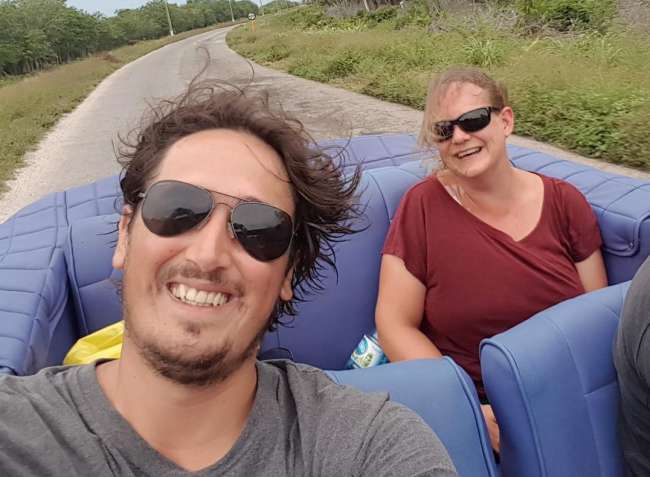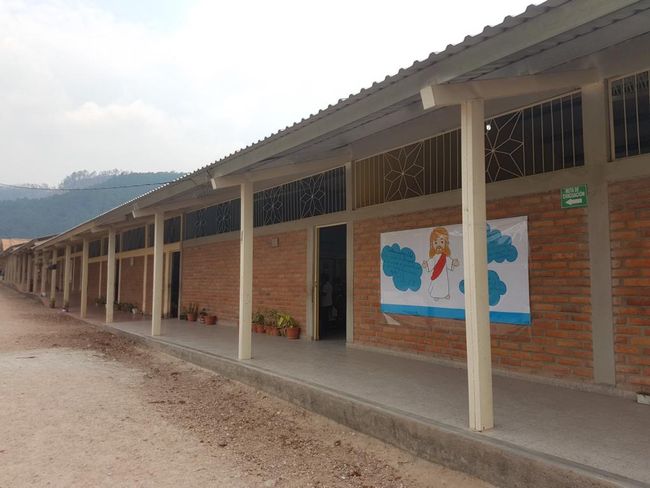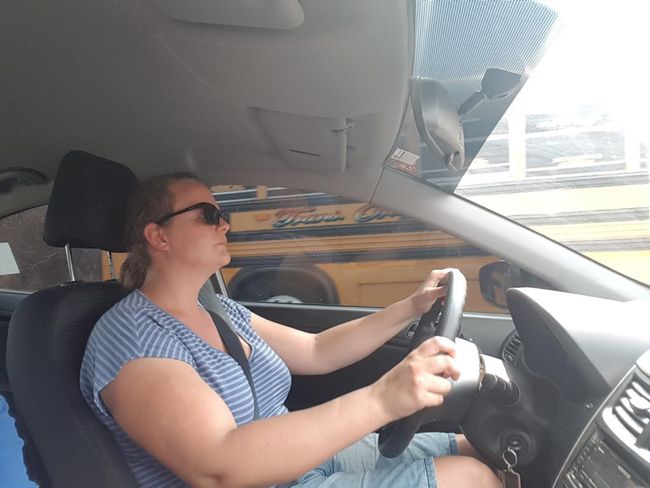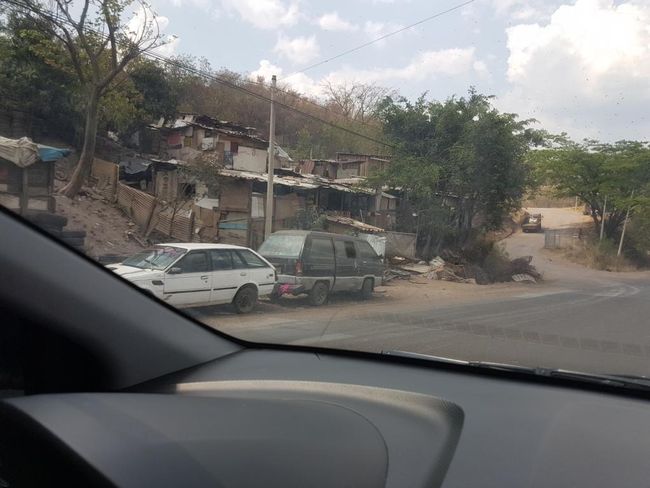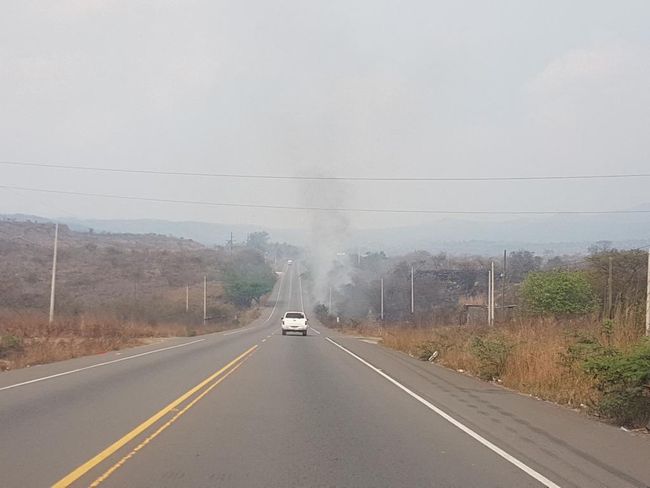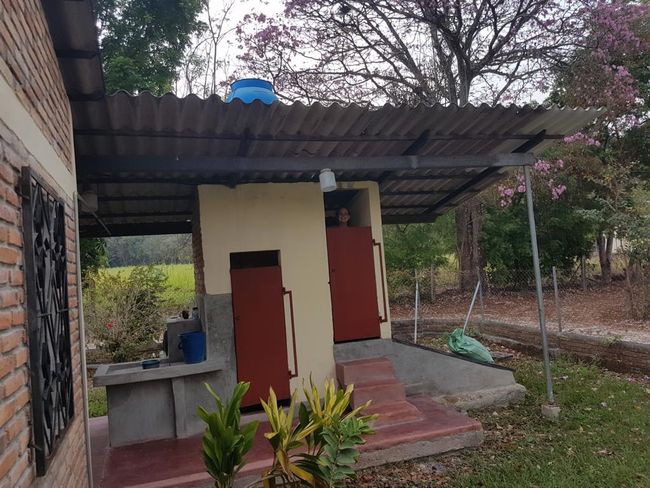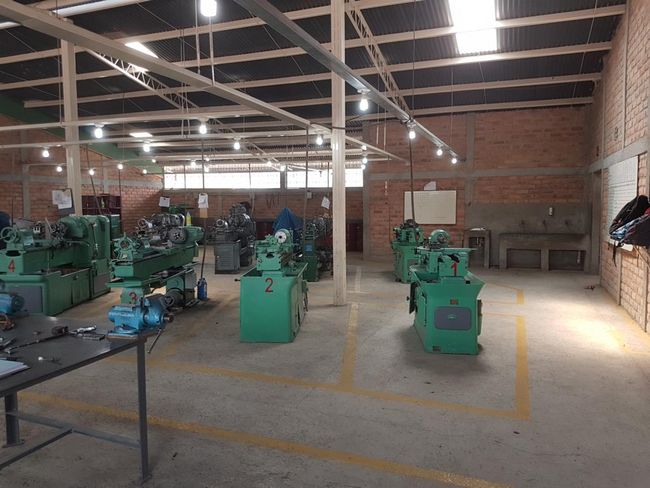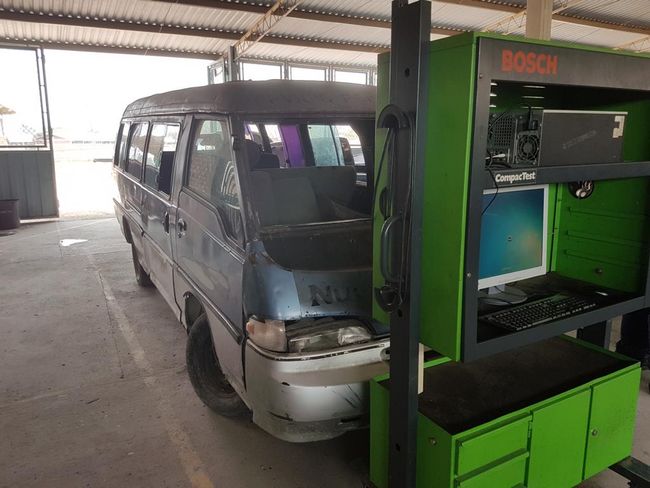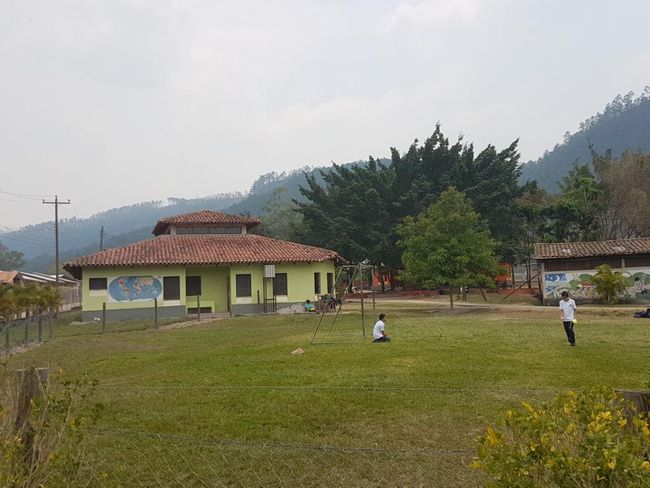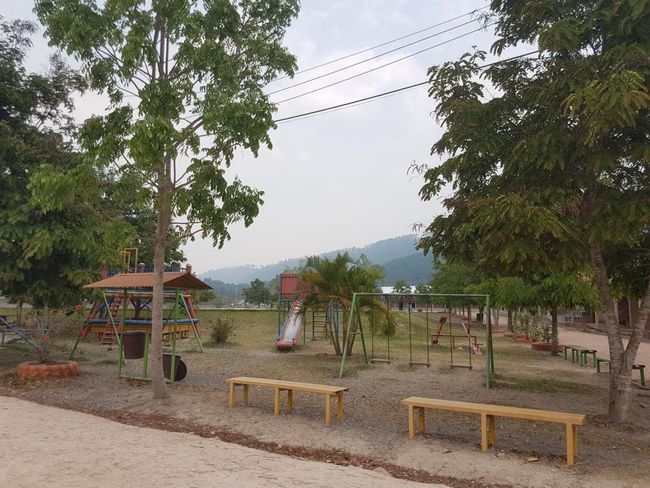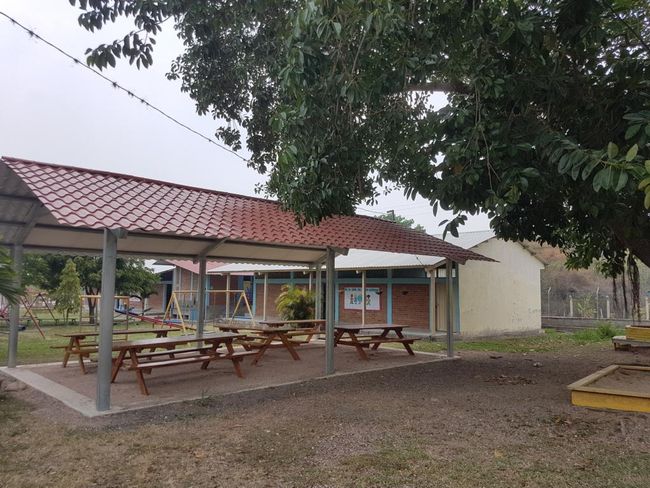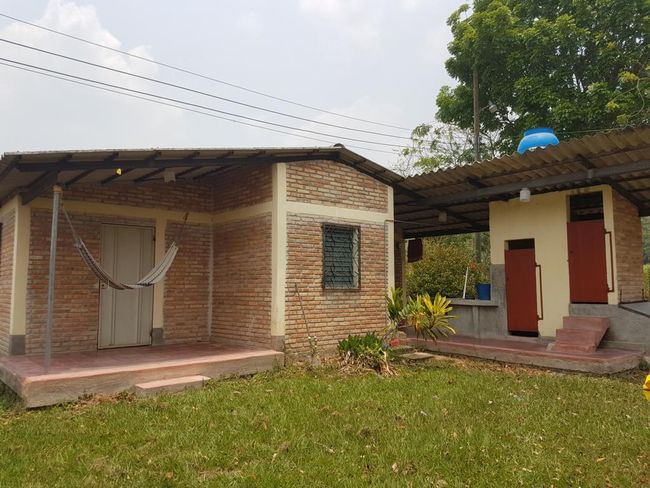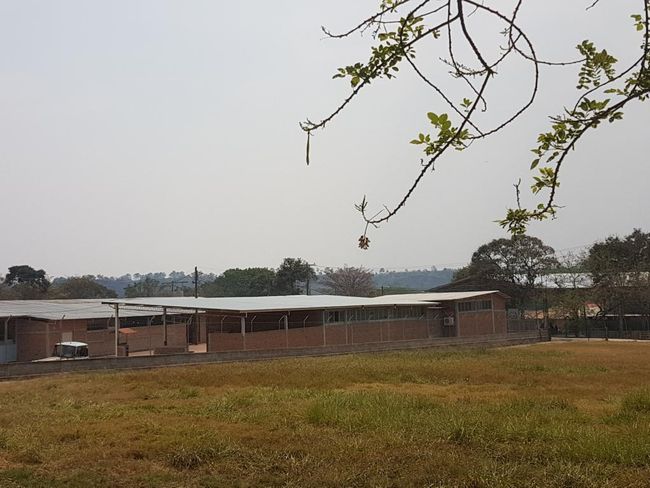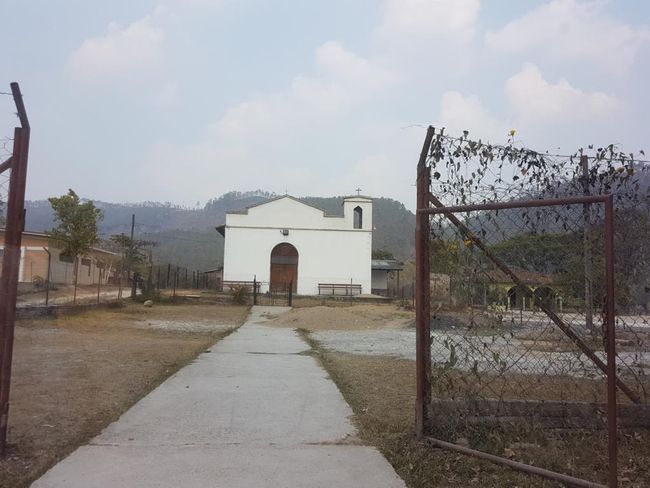Honduras: La Venta
Нашр шудааст: 01.05.2018
Ба бюллетен обуна шавед
After La Venta, we drove to visit Edi and Martha, acquaintances of Jörg's mother. The two of them have been running a private school here for about 30 years, which they continue to expand. Edi originally came to Honduras in 1987 as a volunteer in a children's home. In 2000, he married Honduran Martha and lives with her and their son in a house right next to the school grounds.
We were warmly invited to visit the place and the school and to stay on the premises. We were accommodated in simple but functional wooden huts, which used to be a children's home.
The school Asociacion Nuevo Amanecer educates a total of 700 students and 270 vocational learners. The school is divided into 3 sectors: the purely Spanish secondary school offers classes 7th through 9th in Spanish. The students here mostly attended a public primary school before. The bilingual sector also includes younger children. Here, all grades and even a kindergarten are offered. Classes are taught bilingually in Spanish and English. The third area covers vocational training, where students can train in 5 professional groups: hairdresser, baker, industrial mechanic, car mechanic, or IT specialist. The training lasts 1-2 years and is carried out in workshops.
The school clearly differs from the school we previously visited, «Niños de Guatemala», in that it is a private school that is supposed to be financially self-sustaining to a large extent. School fees must be paid for attendance, although poorer families can benefit from a graduated fee system that matches their financial capabilities and can also apply for a scholarship for their child to attend school.
While the school in Guatemala clearly targets very disadvantaged children, but also relies solely on donations for funding.
The schools also differ significantly in terms of their requirements. While the school in Guatemala places a great deal of emphasis on basic education (manners, hygiene, social skills, nutrition, etc.), here purely academic learning goals clearly take center stage. Discipline in class is also much more emphasized.
However, both schools ultimately have the same goal: to provide children with a good education, to create opportunities, and to enable a better future.
The Asociacion Nuevo Amanecer describes the education problem in Honduras on its website as follows:
«Despite progress in recent years, the education system in Honduras is still poor. Both the quality of education and the enrollment rates, as well as the infrastructure and teaching materials, are at a relatively low level. This has a negative impact on children's education. In most larger villages, there is a state primary school, but it is often staffed with poorly trained and unmotivated teachers. Unfortunately, many students can still hardly calculate, read, and write even after completing 9th grade.
The low level of education is considered one of the main obstacles to combating poverty in Honduras. Therefore, it is crucial for the population that the education system improves.
While there are numerous quality private schools in Honduras, they are generally inaccessible to poor families due to high tuition fees.»
I particularly liked the workshops, which were well-equipped with lathes, special automotive engines for training purposes, kitchen appliances, etc., thanks to donations from Switzerland and Europe. I think vocational training is very important for these young people. Mastering a trade is always a good foundation for finding a decently paid job or starting one's own business and being able to support one's family.
The school employs 77 staff members, including teachers, vocational trainers, school bus drivers, administrative staff, and guards, making it an important employer in the region. Great importance is placed on hiring and retaining local employees from the surrounding area.
As already mentioned, the school is constantly expanding, with new classes to be added. When we were there, a new building with additional classrooms was just completed. Necessary building materials are sourced locally, and the work provides a welcome source of income for local craftsmen.
Thus, the school has become an important factor in the infrastructure of the small town of La Venta and its catchment area.
It was truly amazing to have the opportunity to get to know Edi's life's work. And it truly is a life's work, as it takes a great deal of dedication, perseverance, courage, and commitment to build something like this and keep it running, especially in a foreign country with different customs and culture. This success truly deserves the utmost respect!
If anyone is interested in further information about the school or even wants to make a financial contribution, here is the link to the school's website:
http://www.ana.hn/wp/language/en/home/
Edi and Martha kindly invited us to dinner, where we also met Hermann, a 73-year-old volunteer from Austria who lives on a houseboat in Sweden. For the past 10 years, he has come to Honduras for 3 months every year and lives here in one of the wooden huts at the school, which he has lovingly furnished and renovated. In return, he volunteers in the school's carpentry workshop; he used to work as a carpenter and obviously has talent.
Martha prepared Baleadas for dinner, a typical dish in Honduras. They are thick tortillas that can be filled with various ingredients (such as cheese, bean paste, scrambled eggs, avocados, etc.).
After dinner, Hermann invited us to have a drink on his self-built terrace next to his wooden hut. We spent a pleasant evening and enjoyed listening to the many stories he had to tell.
It was truly very interesting and an honor to have the opportunity to get to know the Fellmann family and their project, and we would like to express our sincere thanks for the kind invitation!
Ба бюллетен обуна шавед
Ҷавоб
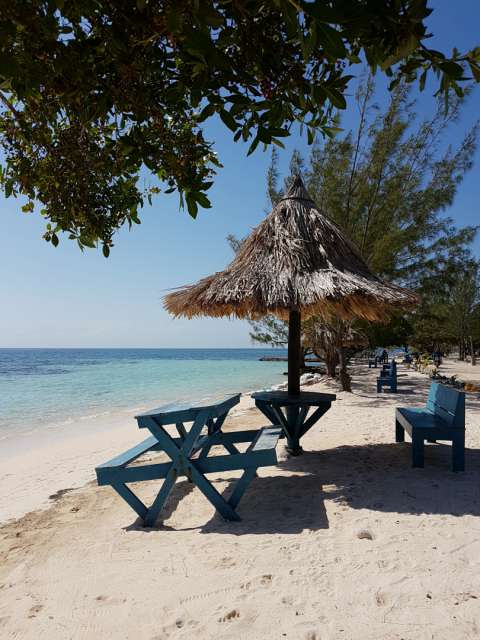
Ҳисоботи сафар Гондурас

